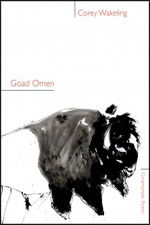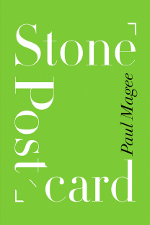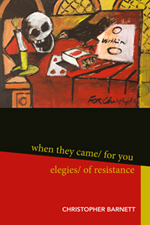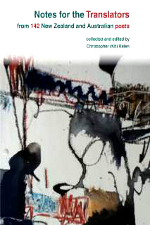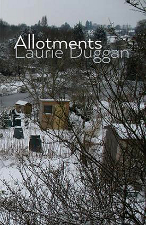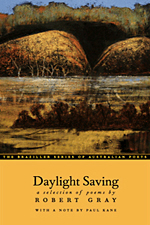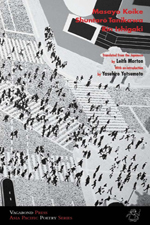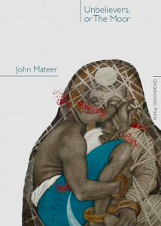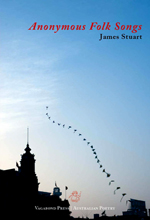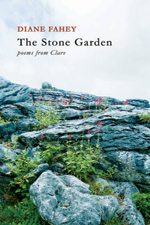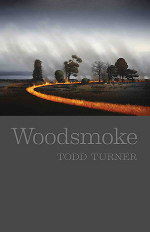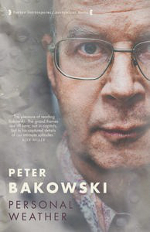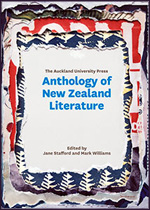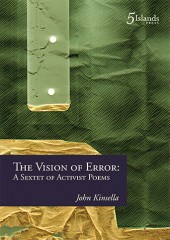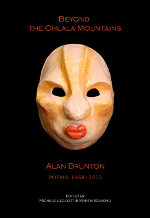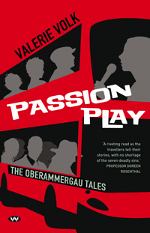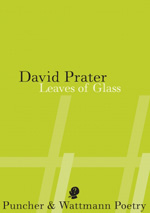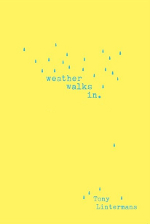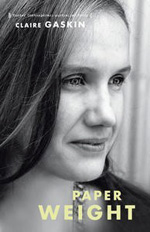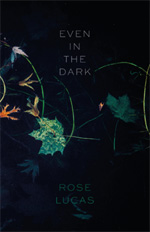BOOK REVIEWS
Philip Mead Reviews Corey Wakeling
How do you hear the title to this volume of poems by Corey Wakeling? Goad Omen: two words that really slow you down as a reader, make you dwell on their unnatural pairing. Three dipthongal, molasses-slow syllables. They sound like a slip of the tongue, a conversational mishearing, or typo that should have been Good Omen perhaps.
Review Short: Paul Magee’s Stone Postcard
Unlike the recent Australian governmental fervour for signs of title (British, monarchist, hierarchical) and their accompanying anathemas contra entitlement (Australian, social democratic, welfarist), poetry titles struggle with self-authorization and singularisation.
Tina Giannoukos Reviews Notes for the Translators from 142 New Zealand and Australian Poets
Notes for the Translators from 142 New Zealand and Australian Poets steps into the fertile territory of literary exchange. It is a welcome invitation to poet-translators to immerse themselves in the work of contemporary Australian and New Zealand poets.
Review Short: Laurie Duggan’s Allotments
In 2012 Puncher & Wattmann published Laurie Duggan’s serial ‘Blue Hills’ poems in one collection. The ‘Blue Hills’ – a sequence that first appeared in Duggan’s The Great Divide (1985) and then reappeared intermittently through a number of subsequent books until being brought together in The Collected Blue Hills – are notational works concerned with the idiosyncrasies of place, or perhaps space, depending on one’s theoretical allegiances [if any].
Review Short: Robert Gray’s Daylight Saving: a selection of poems by Robert Gray
In ‘Minima’, Robert Gray writes that ‘the senses can mislead us, / …when we rely on only one of them’. Gray is in no danger of being misled. The dimension of synaesthesia in his perceptions has been widely noted, but it manifests itself in this collection as something both chronologically prior to, and conceptually broader than, the apprehension of one sense through another.
Jennifer Mackenzie Reviews Asia Pacific Writing Series Books 1-4
Vagabond Press has recently issued four attractively presented volumes of poetry from the Asia Pacific region. Each contains the work of three poets and represents China, Japan, Vi-etnam and the Philippines, respectively.
Lucy Van Reviews John Mateer
In his two most recent books, the prolific John Mateer presents work developed over the long haul. His concluding essay in Unbelievers is a reflection on the seven years of writing behind that body of work, and Emptiness emphasises in its subtitle the 14-year scope of that collection. Despite the years of writing they represent, both collections bear a freshness of focus, expressed through Mateer’s formulation: ‘the irony of Elsewhere’.
Rachael Briggs Reviews Maxine Beneba Clarke
The blurb at the back of the book touts nothing here needs fixing as ‘a stunning attack on the pretentious white male gits who see poetry as an exalted profession to keep away from those who are loud, black, female, happy, or even in possession of lives outside poetry.’
Review Short: James Stuart’s Anonymous Folk Songs
On the cover of James Stuart’s debut collection Anonymous Folk Songs is an image of a series of kites strung together; tethered to a darkened cityscape, they stretch away from it, curving upwards into the sky above. In any scene where the light falling upon subjects differs, the photographer must choose which part of the image to correctly expose – and therefore to highlight – the earth or sky, the kites or clouds. The photograph is Stuart’s own, and it is the sky that takes up most of the frame, that retains depth and a complexity of colour and tone. And yet the unbroken black silhouette of an urban skyline anchors the sky, just as a barely visible line of string anchors the desiring kites to ground. The same impulse that animates this image on the cover is embedded in the poems within.
Review Short: Diane Fahey’s The Stone Garden: Poems from Clare
A note on the copyright page of The Stone Garden reads: ‘The Stone Garden is written in tanka, the five-line Japanese lyric form, the first and third of its lines having five syllables, the others, seven.’ The book keeps to this syllabic form throughout with two five line poems to a page. These poems from Clare unfold in six sections and Fahey’s craft is evident in the way she can break registers of imagery with engaging shifts and turns.
Review Short: Todd Turner’s Woodsmoke
The poetry in Todd Turner’s debut collection Woodsmoke explores topographies of land and memory. Comparable to the approach of Australian poets such as Philip Hodgins and Brendan Ryan, many of Turner’s poems explore human interactions with rural landscapes. Turner’s biographical note indicates that his ‘parents were from farming families in the town of Koorawatha, situated on the Western Plains of New South Wales’ (v). Like Hodgins and Ryan, Turner is unafraid to include autobiographical references within many of his poems.
Review Short: Peter Bakowski’s Personal Weather
Bakowski looks into the lens in the photograph by Nick Walton-Healey on the cover of Personal Weather. The poems are also direct. They eschew simile, ambiguity, and the abstract. Were he an etcher, Bakowski’s work would be figurative with clear outlines and orderly perspective. There is no hesitation in his lines. His skies might be cloudy but there would be no obscuring storms of angst, only fugitive rays spotlighting the quirky in the mundane.
Lisa Samuels Reviews The Auckland University Press Anthology of New Zealand Literature
The dust jacket for this anthology was justifiably awarded for the subtle arrest of its front visual. The front features a photo-semblance of four prior anthology dust jackets torn back to reveal the newest cover, simple beige paper with blue and beige print used for the title and editor names. This cover also reveals something about the enterprise inside: this newest entry is a beige discretion suffused by its relations to anthology making of the past. The 1164 pages within bear the desire of this anthology to be another in a sequence of Last Words.
John Hawke Reviews The Organ-Grinder’s Monkey: Culture After the Avant-Garde
The dream of a compact between revolutionary politics and a poetics of radical experimentation has haunted the avant-garde since its inception in the wake of the failed European uprisings of 1848. Rimbaud’s activation by the events of the Paris Commune, and Mallarmé’s sympathies for the Bakuninite anarchists of his day, signal an alignment between Modernist aesthetics and extremist politics (of both Left and Right) that is central to debates within twentieth century literature. The politics of the Cubo-Futurist avant guerre movements were notoriously unstable, informed by a mélange of Nietzschean and Sorelian violence, an apotheosis achieved in the cataclysmic events of the Great War.
Danijela Kambaskovic-Sawers Reviews Graveyard Poetry: Religion, Aesthetics and the Mid-eighteenth-Century Poetic Condition
This book examines ‘Graveyard poetry’, a critical appellation described by its author, Eric Parisot (Australian Research Council Discovery Early Career Research Award Fellow, University of Queensland) as an imperfect, but serviceable and (grudgingly) accepted construct, commonly used to discuss the work of a group of eighteenth-century British poets meditating on death and Christian salvation, and doing so in close proximity of the dead, usually in a crypt or at a graveyard. If this cruelly crude summary sounds like it describes a simple enough phenomenon, think again: Parisot’s book shows clearly that everything about this category – the names of the artists who should be included in it, including Robert Blair, Edward Young, Thomas Grey, John Ogilvie, John Cunningham, Thomas Wharton (to name but a few), different characteristics of their work, the different sentiments addressed or evoked, and the effects the works had on contemporary readers and readers in our own time – can be questioned, contested or excluded. And it often is.
Geoff Page Reviews John Kinsella
John Kinsella’s latest foray into what has become known as ‘ecopoetics’ raises many more aesthetic and political questions than can be resolved in a short review. As in his Divine Comedy: Journeys Through a Regional Geography (2008), Kinsella makes vivid and considerable use of autobiography. He and his family are presented as embattled eco-pioneers in a region already much destroyed by bad farming practices, partly multi-national in origin, and roamed over at will by township hoons ready to shoot up anything that moves.
Review Short: Beyond the Ohlala Mountains: Alan Brunton, Poems 1968-2002
The mask on the cover of ‘Beyond the Ohlala Mountains’ suggests that there’ll be some odd theatrics inside the book. It’s a plain papier-mâché mask of a slightly jowly head with a bulbous nose and a pair of puckered, pouting, full red lips. What does it express – is it a superior sneer? Is it bourgeois disdain? Is it about to say ‘oh là là’? The mask was made by Sally Rodwell, the now-deceased partner of the New Zealand poet collected here, Alan Brunton. It was made for a theatre work called Cabaret of the Unlikely that was performed three years after Brunton had died at 55, in 2002.
Review Short: Valerie Volk’s Passion Play: The Oberammergau Tales
Invoking Chaucer’s Canterbury Tales, in structure and with a ‘motley crew’ of pilgrims, Volk’s Passion Play: The Oberammergau Tales assembles a cross-section of modern society cloaked in secrecy and scepticism. Where Chaucer’s travellers are drawn together by a story-telling competition, Volk’s pilgrims are united by a four-day bus tour to the German town of Oberammergau for the ritual of the Passion Play.
Sally Evans Reviews David Prater
David Prater’s latest collection Leaves of Glass is based on three years’ correspondence in the late nineteenth century between young Australian poet Bernard O’Dowd and the ageing master Walt Whitman. The epistolary material between these two men, a collection of twenty or so letters currently archived at the State Library of Victoria, forms the skeleton for this collection. Prater deftly plays with these two personae, offering a kaleidoscopic vision of their relationship alongside a number of poems that experiment with the ambiguities of written language and the shifting levels of intimacy revealed by the O’Dowd–Whitman letters.
Review Short: Jill Jones’s The Beautiful Anxiety
Frank O’Hara has a poem unambiguously and humorously titled ‘You Are Gorgeous and I’m Coming’. As pastiche or homage – even incidentally – the first two poems from the six-part sequence that opens Jill Jones’s stunning new collection The Beautiful Anxiety are titled: ‘1. Hold On’, and ‘2. I’m Coming’ (‘My Ruined Lyrics’). The present continuous tense of the verb ‘to come’ is thematically apt everywhere in this collection. Not only are poems throughout The Beautiful Anxiety sensual and frequented by moments of desire or quiet ecstasy, they are constantly ‘coming’ in the sense that they are arriving.
Review Short: Tony Lintermans’s Weather Walks In
I think of plainsong when I read Lintermans’s poems, of cadences unadorned by instrumentation but satisfying in their sound and rhythm. They are by no means Gregorian chants, but they still offer the calmness and sonority of such songs. This peacefulness begins with the physical appearance of the book. A yellow cover with blue type: the typeface like a manual typewriter. Apostrophes are rain drops. It’s a simple but effective design. Inside, the poems are laid out equally as simply and effectively.
Ella O’Keefe Reviews Claire Gaskin
In Paperweight, her third full-length collection, Claire Gaskin shows her talent for observing fluctuations in the state of things – personal, political and environmental. Within this, she does not turn from the darker corners of the human psyche. ‘Just do the best you can’ opens with a frank acknowledgement of mortality: ‘your death keeps growing/or your life keeps contracting’.
Review Short: Rose Lucas’s Even in the Dark
Rose Lucas is a name often found in anthologies, awards and shortlists, so it is no misnomer to call this first collection of poems long-awaited. ‘Time’ calibrates the scale in these poems, which span detail in lives from pre-conception and birth to the discovery of a cremated woman’s body 40,000 years in the earth.

